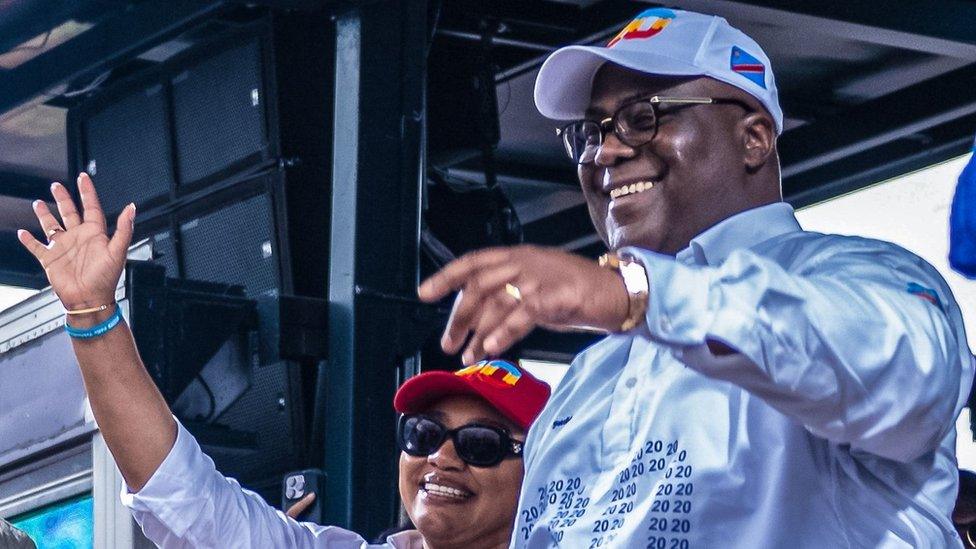DR Congo protests: Police fire tear gas to disperse anti-Western demonstrations in Kinshasa
- Published
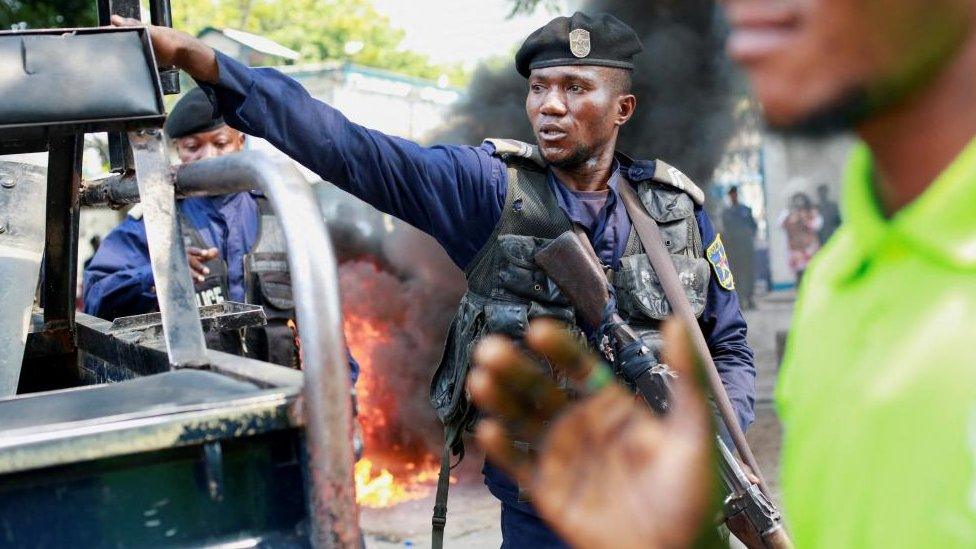
DR Congo's government has stepped up security outside Western embassies
Police in the Democratic Republic of Congo's capital Kinshasa have fired tear gas to disperse crowds protesting against Western governments.
The protesters accuse the governments of failing to use their influence over neighbouring Rwanda to curb a rebellion in eastern DR Congo.
Rwanda is accused of backing the M23 rebel group, which it denies.
Angry protesters burnt the flags of the US and Belgium, DR Congo's former colonial power, on Monday.
Demonstrations have taken place outside several Western embassies in recent days .
In the latest protests, anti-riot police pushed back demonstrators as they tried to advance towards embassies.
"The Westerners are behind the looting of our country. Rwanda doesn't work alone, so they must leave our country," Pepin Mbindu, who joined the protest, was quoted by Reuters news agency as saying.
More than 50 police officers were deployed on Monday to protect the UK embassy, which is situated along the River Congo.
Dozens of officers also stood guard outside the French and American embassies.
International schools and foreign-owned shops in Kinshasa's central Gombe district remained closed, as concerns about safety mounted.
Protesters set alight tyres around the city centre, while footage from Reuters showed dozens celebrating as US and Belgian flags were placed on a pile of burning tyres.
Videos circulating on social media showed French and European Union (EU) flags being removed from Belgian-owned Hotel Memling as a crowd demonstrated outside the building.
The hotel told the BBC it had removed the flags to avoid "provoking" protesters.
The US on Sunday urged its citizens in DR Congo to "keep a low profile" and "ensure your family has enough food and water should you need to stay home for several days".
The UK foreign office warned that protests were "likely to continue throughout the week", and there was a risk that foreign nationals could be "indiscriminately targeted".
On Saturday, the UN, which has a peacekeeping force in eastern DR Congo, said several of its vehicles were set alight and ransacked.
A shop belonging to French broadcaster Canal+ was destroyed by demonstrators, while social media videos showed plumes of dark smoke rising above the city.
At a meeting on Sunday, DR Congo's Foreign Minister Christophe Lutundula gave Western diplomats and UN officials an assurance that the government will protect them.
Over the past fortnight, hundreds of thousands of people fled their homes in eastern DR Congo's Masisi region to seek refuge in the major city of Goma, following deadly attacks by the M23 rebels.
The M23 is now advancing towards Goma, home to around two million people.
The group says it does not want to capture Goma, but its fighters blocked the two main roads into the city from the north and the west, preventing the produce that feeds residents from getting through.
The M23 is one of dozens of armed groups that have long plagued DR Congo's mineral-rich east, battling for control of land there.
The conflict has forced nearly seven million people from their homes, in what the UN calls one of the "largest humanitarian crises in the world".
The M23, formed as an offshoot of another rebel group, first began operating in 2012 ostensibly to protect the Tutsi population in eastern DR Congo, which had long complained of persecution and discrimination.
UN experts have said that the group is backed by Rwanda, which is also led by Tutsis, something that Kigali has consistently denied.
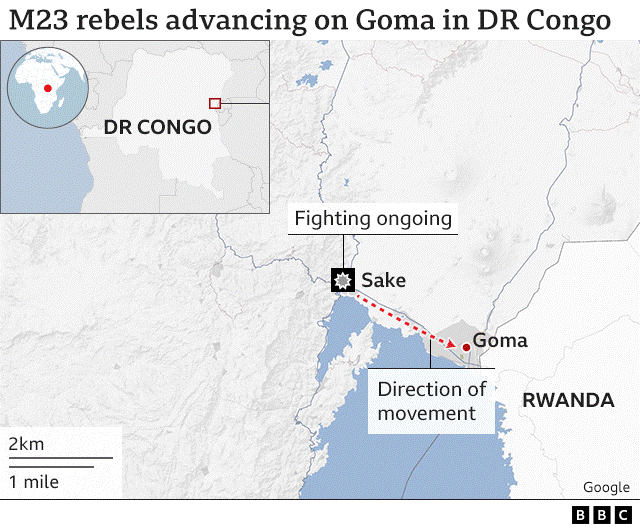
Related topics
- Published31 January
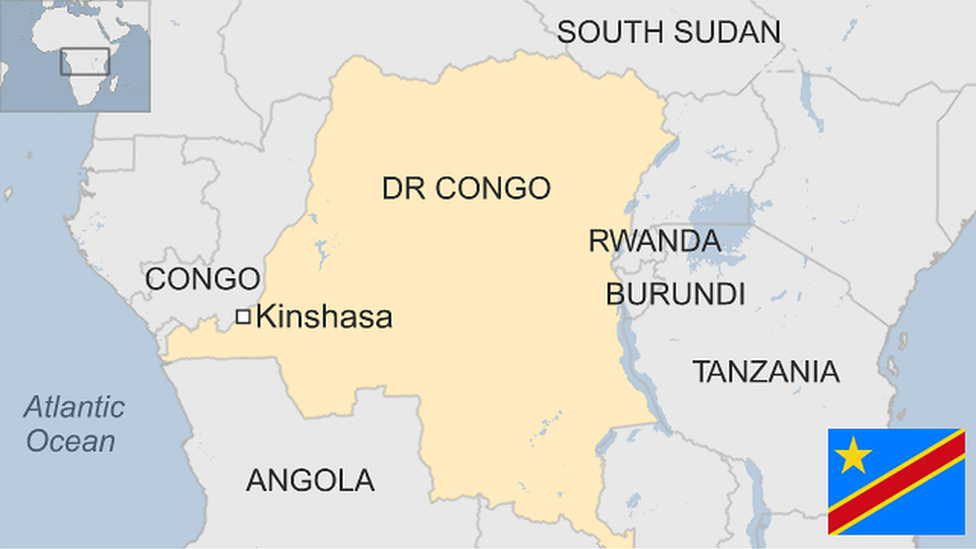
- Published3 January 2024
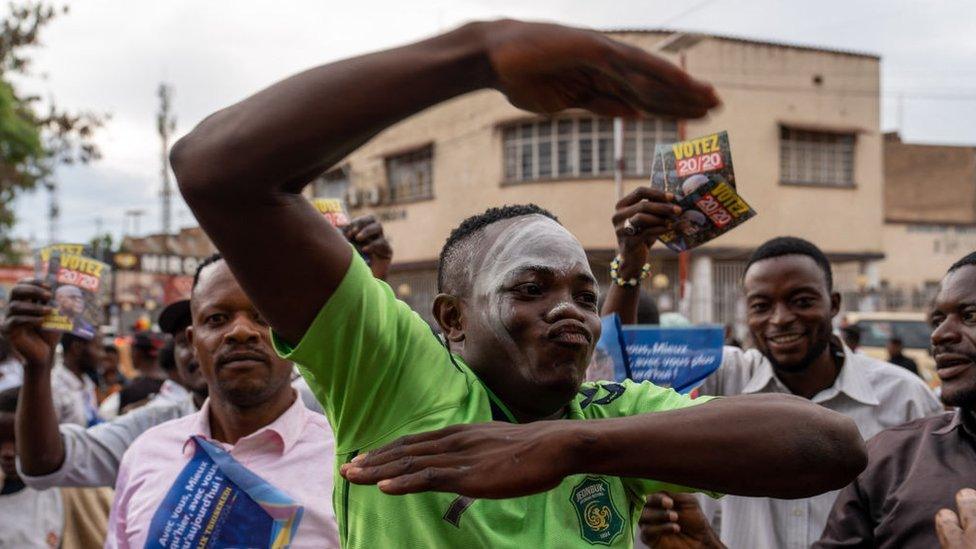
- Published20 January 2024
